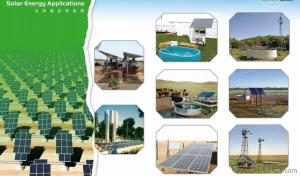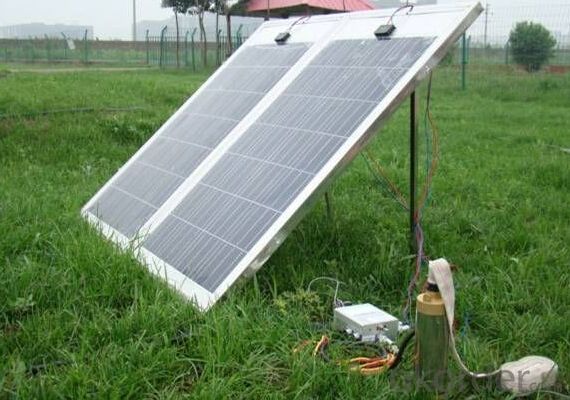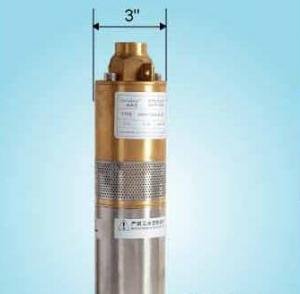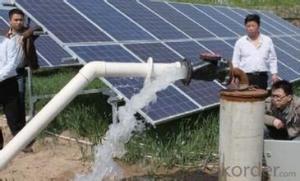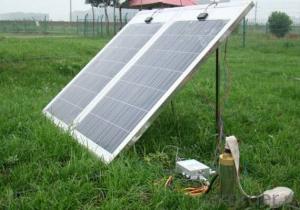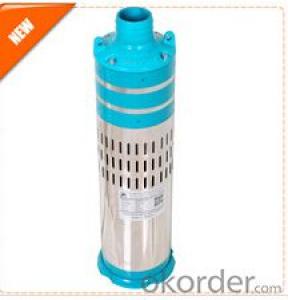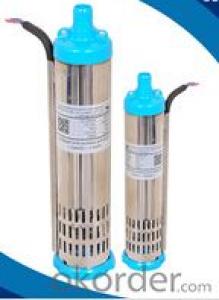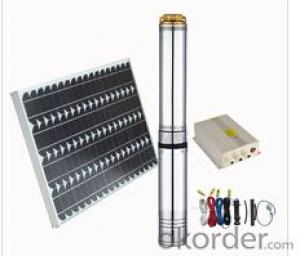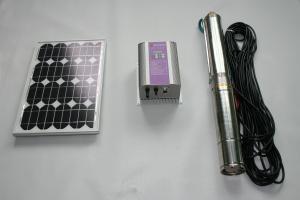Solar Pump System 0.1kw-37kw for Agricultural Irrigation
- Loading Port:
- Shanghai
- Payment Terms:
- TT OR LC
- Min Order Qty:
- 10 pc
- Supply Capability:
- 1000 pc/month
OKorder Service Pledge
OKorder Financial Service
You Might Also Like
Solar Water Pump Centrifugal Pump System 0.8-1KW for Agricultural Irrigation
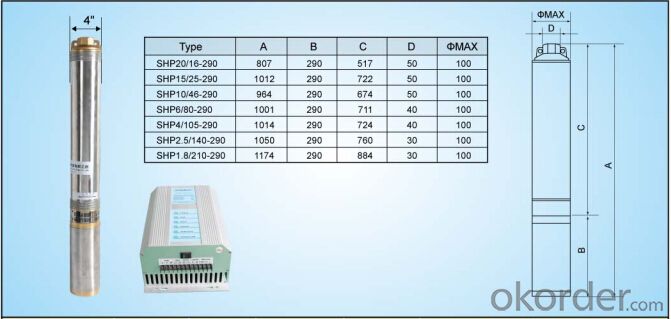
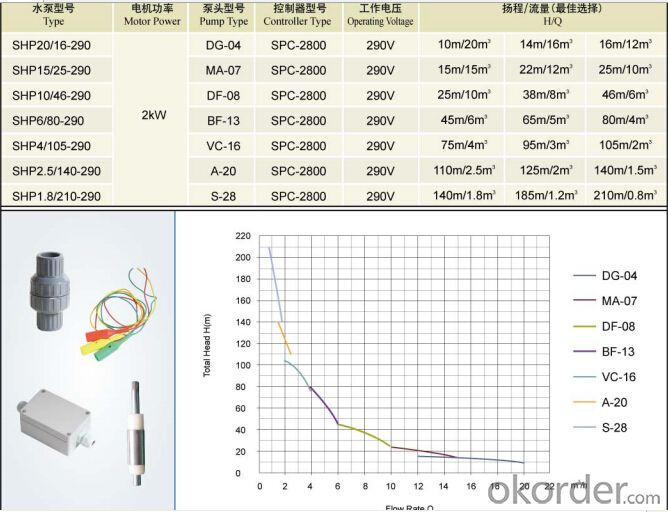
The photovoltaic pumping system is different from the traditional AC pumping system , and the photovoltaic pumping system utilizes solar cells convert solar energy into electric energy , then the photovoltaic pumping inverter drives ac motor for the pump running , and pumping up water from water well , river , lake etc areas and then transport to the destination to satisfy our requests for the water demand .
Photovoltaic arrays adopts solar radiation energy to convert it to electric power ,providing the motive power for the whole system . And the function of the solar pumping inverter is converting the DC power output from PV array to AC power to drive the pump to finalize the water pumping up as well as adjusting the output power real-timely according to the change of sunlight intensity , in this way , the system realizes the max power point tracking and the solar energy can be utilized furthest
The whole system solves the water pumping up requests perfectly , omitting the battery bank and charge controller etc equipments , so it is very economical and environmental . Since they are with the merits of low carbon , energy conversation , environmental protection etc , so they have a broad market foreground and great social value
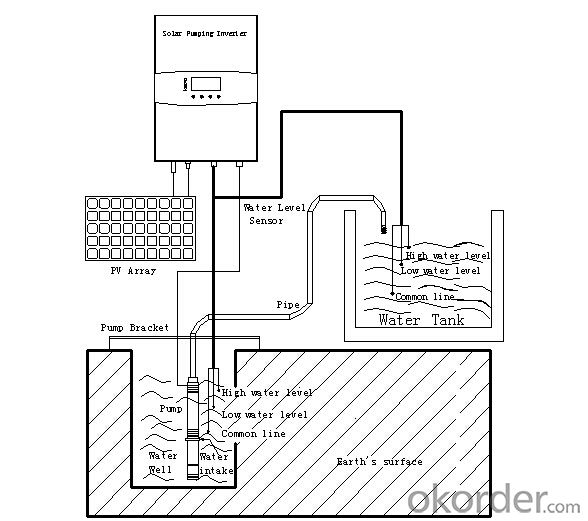
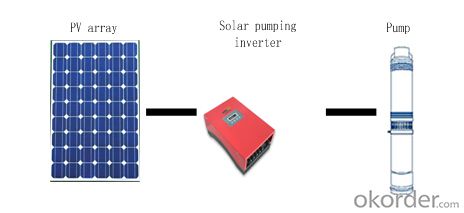
2.2 Application
Agricultural irrigation
Desert manage
Domestic water
Grassland animal husbandry
city waterscape
Island water supply
Landscape and fountain system of municipal engineering , city square , hotels and residence community
2.3 About product
This product is using a high performance digital signal processing chip, can provide solution for solar water pumpingsystem with high cost performance. Solar pumping system as a whole block diagram as shown in 2.
SHP series inverter has the following features:
a. True max power tracking technology (TMPPT) with our own intellectual property; effectively improve the use ratio of PV array. The stable tracking efficiency can reach 99.2% , Solving the problem of bad tracking efficiency and running unstability under the situation of sunlight intensity quick change when comparing with the traditional MPPT method .
b. Adopt efficient IPM power module from Mitsubishi Company with high reliability.
c. With the function of high and low water level detection , high safety factor.
d. Automatic anti-drying protection function , with multi-protection for motor
e. Multi-language LCD display , easy for operation , very user-friendly
f. The independent developed principal computer with our own intellectual properties , remote monitoring is available
g. Modular design , direct plug-in terminal , good-looking appearance, easy for installation , operation and maintenance .
h. Suitable for the pump adopted three phase asynchronous motor
i. Complete digital control , with the function of full automatic running and data storage .
j. Perfect protection system , with the protection function for lighting , over voltage , under voltage , short circuit , over loads , water drain off , low sunlight , over heating etc ,
k. Adopt the complete radiating system , so radiating efficiency is better and the service life is longer
l. Through strict environmental test , adapt the rigorous environment :-10℃~+50℃
m.No impacted mains supply power switch function (optional ), All-weather running available
n. Through strict environmental test , adapt the rigorous environment :-10℃~+50℃
FAQ
1. How fast will my system respond to a power outage?
Our solar inverters typically transfer to battery power in less than 16 milliseconds (less than 1/50th of a second).
2. What kind of batteries do the systems include?
Our solar backup electric systems use special high-quality electric storage batteries.
3. How do I install my system?
A solar backup inverter is connected to a home electric system , we will supply detailed installation manual and videos for our customers .
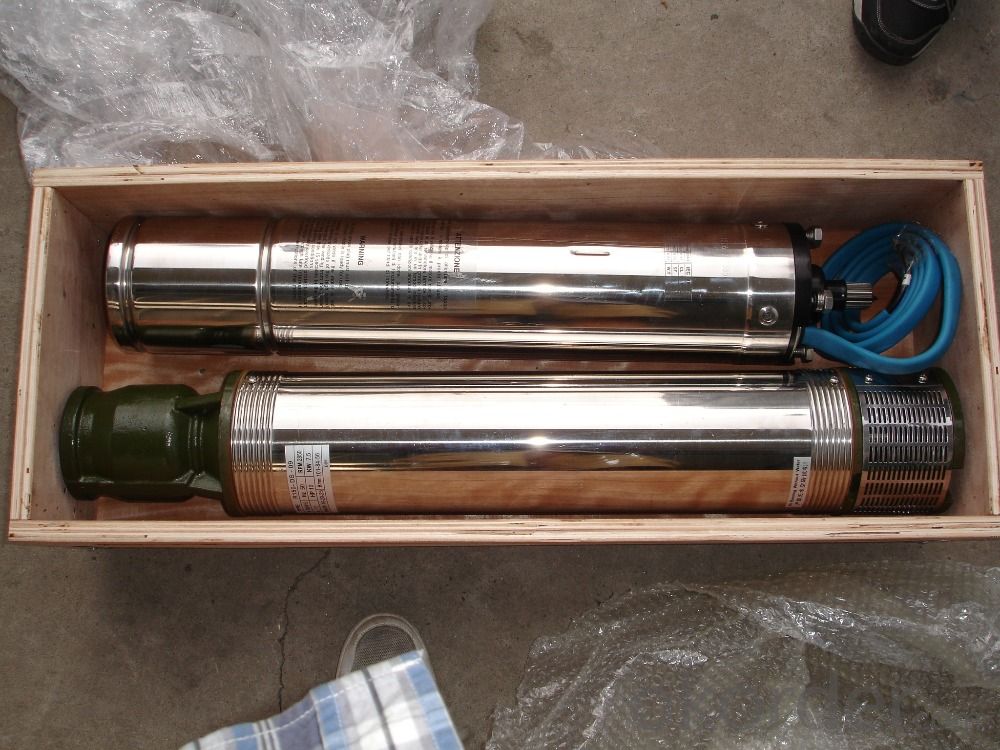
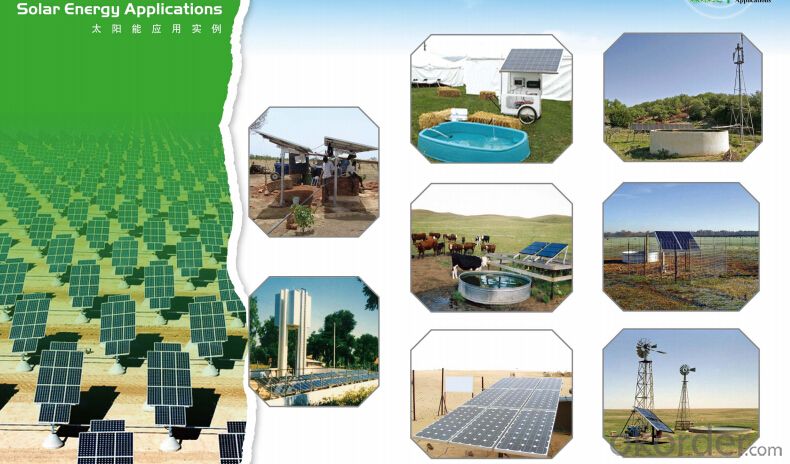
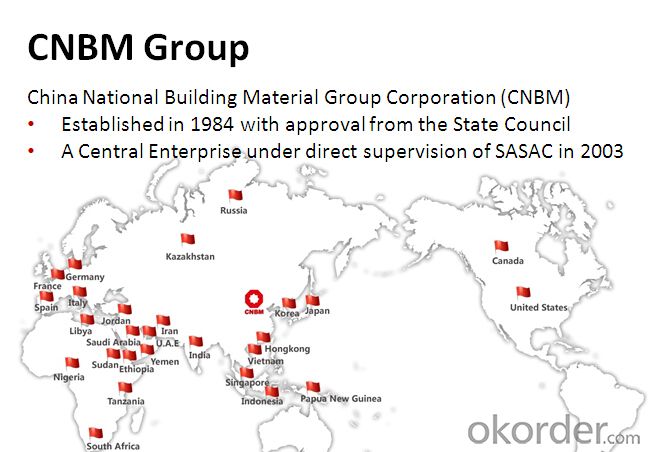

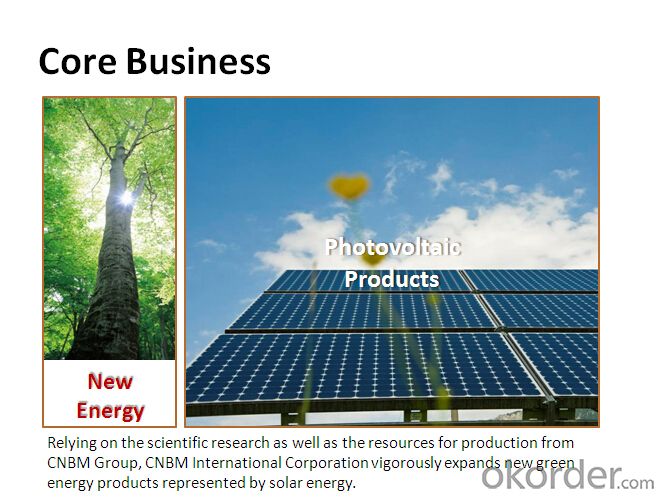

- Q: How does the size of the pump motor affect the performance of a solar pump?
- The size of the pump motor directly affects the performance of a solar pump. A larger motor can generate more power, resulting in increased pumping capacity and higher flow rates. Conversely, a smaller motor may have limited power output, leading to reduced performance and lower water output. Therefore, choosing the appropriate size of the pump motor is crucial to ensure optimal performance and efficiency of a solar pump system.
- Q: Is a solar pump suitable for all types of water sources?
- No, a solar pump may not be suitable for all types of water sources. Its effectiveness can vary depending on factors such as the depth of the water source, the availability of sunlight, and the quality of the water. It is important to assess the specific requirements of the water source before determining if a solar pump is suitable.
- Q: Can a solar pump be used for wastewater treatment or disposal?
- Yes, a solar pump can be used for wastewater treatment or disposal. Solar pumps are a sustainable and environmentally-friendly option for various water-related applications, including wastewater treatment. Solar-powered pumps can be used to circulate and aerate wastewater, which helps in the breakdown of organic matter and the removal of harmful pathogens. Additionally, solar-powered pumps can be used to transport wastewater to treatment facilities or to pump treated wastewater for disposal. The use of solar energy reduces dependency on fossil fuels and contributes to the overall sustainability and cost-effectiveness of wastewater treatment processes.
- Q: Can a solar pump be used in areas with limited access to financing options for installation or maintenance?
- Yes, a solar pump can be used in areas with limited access to financing options for installation or maintenance. Solar pumps are a cost-effective and sustainable solution for water pumping, as they do not require electricity or fuel costs. They can be installed and maintained by local communities or organizations with minimal technical expertise, reducing the need for expensive professional services. Additionally, solar pumps have a longer lifespan and lower operating costs compared to traditional pumps, making them a viable option even in economically constrained areas.
- Q: Are solar pumps suitable for use in developing countries with limited access to electricity?
- Yes, solar pumps are suitable for use in developing countries with limited access to electricity. Solar pumps provide a sustainable and reliable source of power for water pumping, which is essential for agricultural and domestic purposes in these countries. They eliminate the need for grid electricity or expensive fuel-powered pumps, making them cost-effective and environmentally friendly. Additionally, solar pumps require minimal maintenance and are easy to operate, making them suitable for use in remote areas with limited technical expertise.
- Q: Can a solar pump be used in areas with limited access to financing options?
- Yes, a solar pump can be used in areas with limited access to financing options. Solar pumps are a cost-effective and sustainable solution as they operate using renewable energy from the sun. They eliminate the need for fuel or electricity, reducing operational costs. Additionally, solar pumps have a longer lifespan and require minimal maintenance, making them a viable option for areas with limited financial resources.
- Q: What is the expected payback period for a solar pump installation?
- The expected payback period for a solar pump installation varies depending on factors such as the initial investment cost, energy savings, maintenance expenses, and government incentives. On average, it can range from 3 to 8 years.
- Q: Are solar pumps cost-effective compared to traditional pumps?
- Yes, solar pumps are generally considered to be cost-effective compared to traditional pumps. While the initial investment for solar pumps may be higher, they have lower operating costs as they rely on renewable energy from the sun. Solar pumps eliminate the need for fuel or electricity, reducing long-term expenses. Additionally, solar pumps require less maintenance and have a longer lifespan, further contributing to their cost-effectiveness.
- Q: What is the efficiency of a solar pump?
- The efficiency of a solar pump refers to the ability of the pump system to convert solar energy into useful work, such as pumping water. It is typically expressed as a percentage and represents the ratio of the actual work output to the solar energy input. A higher efficiency indicates that the pump can generate more output for the same amount of solar energy input, making it more cost-effective and environmentally friendly.
- Q: Can a solar pump be used for water supply in off-grid botanical gardens?
- Yes, a solar pump can be used for water supply in off-grid botanical gardens. Solar pumps are a sustainable and eco-friendly solution for water supply in remote areas where traditional electricity is not available. They operate using solar panels to convert sunlight into electricity, which powers the pump to draw water from a water source such as a well or a pond. Botanical gardens often require a consistent and reliable water supply to maintain the health and growth of plants. Solar pumps can provide this water supply without the need for grid electricity or fuel, making them ideal for off-grid locations such as botanical gardens. Solar pumps come in various sizes and capacities, allowing them to cater to the specific needs of the botanical garden. They can be used to supply water for irrigation systems, water features, or even for drinking water for visitors or animals in the garden. Additionally, solar pumps can be integrated with water storage systems, such as tanks or cisterns, to store water for times when sunlight is limited or during periods of high demand. By utilizing solar pumps, off-grid botanical gardens can reduce their dependence on fossil fuels and minimize their carbon footprint. They can also benefit from the cost savings associated with not having to purchase electricity or fuel for traditional pumps. Overall, solar pumps are a sustainable and efficient solution for water supply in off-grid botanical gardens.
Send your message to us
Solar Pump System 0.1kw-37kw for Agricultural Irrigation
- Loading Port:
- Shanghai
- Payment Terms:
- TT OR LC
- Min Order Qty:
- 10 pc
- Supply Capability:
- 1000 pc/month
OKorder Service Pledge
OKorder Financial Service
Similar products
Hot products
Hot Searches
Related keywords
